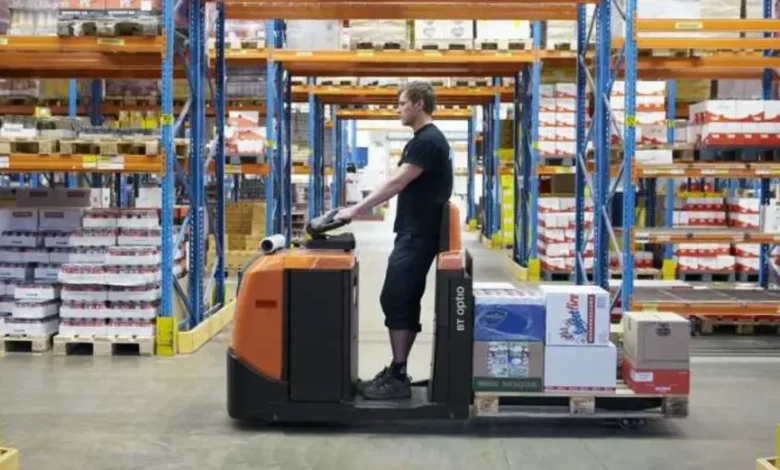In search of stable earnings: commission agent as an employment option abroad for Ukrainians

At a time when the war forced millions of Ukrainians to leave their homes, finding a stable income became a key challenge for many. Thousands of refugees who have found themselves in the countries of the European Union are trying to find a job that does not require knowledge of a foreign language, diplomas or long experience. Among such options, the commission agent profession stands out – an invisible but vital link in the system of modern logistics. This article can be especially useful for Ukrainians who are looking for their first job abroad or who want to quickly enter the labor market.
The essence of the profession: what does the commissioner do
A commission agent is a warehouse employee who collects orders. His work is focused on finding the right goods in the warehouse, packing them and preparing them for shipment. To some, such an activity may seem simple, but behind it is a complex and well-established process, where every action is important.
Typical duties include: receiving goods, placing them in the warehouse, searching for goods according to orders, checking, packing, marking and preparing for shipment. In more technological logistics centers, this may be accompanied by work with voice or light prompts, scanners or automated systems.
Without experience and language – with the opportunity to work
Unlike many other jobs, the work of a commissioner rarely requires knowledge of the language of the host country. Moreover, employers usually do not require either a higher education or previous experience. This is especially relevant for Ukrainian refugees who found themselves in a new environment without the opportunity to confirm diplomas or collect documents for full-time employment.
The main things expected from the candidates are responsibility, accuracy, endurance and preferably physical endurance. In some cases, a license to drive a forklift is required, but if not, many employers will arrange training and cover the cost of certification.
How warehouses work: systems and methods of assembly
In modern logistics centers, work is divided into several models. There is an individual form, when one employee executes an order “from A to Z”, and a group form – where everyone is responsible for a specific stage. The latter is especially common in large warehouses, where efficiency depends on the coordinated work of the entire team.
Another important division is the “man to product” system (an employee moves through the warehouse himself) and “goods to man” (automated delivery of products to the picking location). Both models have their advantages, and depending on the type of warehouse, they are used in accordance with the technical equipment of the enterprise.
In their daily work, commission agents can use innovative technologies:
- Pick-by-Light – a system with light signals that show the location of the desired product;
- Pick-by-Voice – navigation using voice instructions through the headset;
- Pick-by-Scan – use of manual scanners with a screen to confirm each action;
- Pick-by-Point – light guidance that leads to the selected position.
These systems make work faster and reduce the risk of errors – and therefore stress for beginners.
Where to look for work and how much they pay
The work of a commission agent is available in many countries of Western and Central Europe. The most vacancies are open in Germany, the Netherlands, Belgium, Austria and Poland. Ukrainians who already work in such warehouses often recommend this job as a starting position for adaptation in a new country.
Salaries vary by country. For example, in Germany, average rates are between 12.5 and 15 euros gross per hour. In the Netherlands – from 13 to 18 euros. Polish employers offer an average of PLN 6,050 gross per month, which is one of the highest manual labor rates in the country.
Many agencies help to draw up documents, find housing, arrange transportation and even provide a translator during the adaptation phase. However, it is important to pay attention to the terms of the contract and check whether the employee signs the contract directly with the employer or through an intermediary.
Commissioning is not a dream job and not a career peak, but in many cases it is a real, achievable and decently paid option for starting a new life. This is one of those professions that do not devalue a person, even if he does not know the language, lost his documents or has no experience. For Ukrainians, this is a chance to get back on their feet, earn a living, support their family at home, and sometimes take the first step towards integration, new skills and a more ambitious profession in the future.





